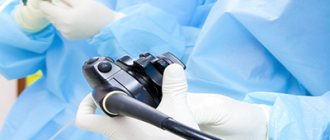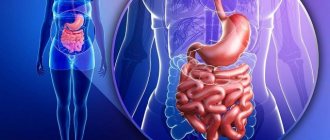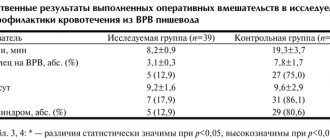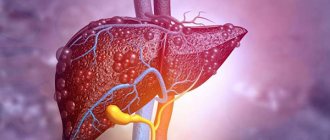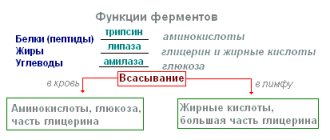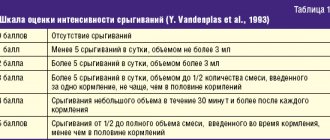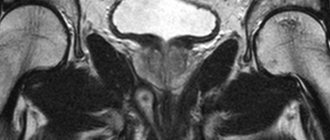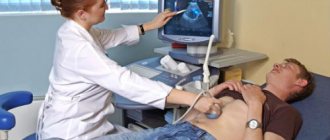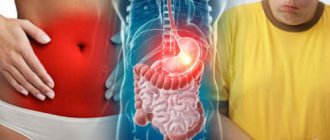Nobody likes to do a gastroscopy. A flexible endoscope causes severe discomfort, and the gag reflex cannot be stopped even with willpower. Therefore, the procedure is strongly associated with unpleasant sensations, and a person would rather do an ultrasound than a gastroscopy. But in vain. Ultrasound is not as informative, and during it it is impossible to examine in detail such a hollow organ as the stomach. It is also impossible to take material for research (biopsy) or record the research on disk. And during gastroscopy, all this is possible.
It is better to do gastroscopy as planned, once a year if nothing bothers you, or once every six months if gastrointestinal diseases were previously identified. But there are cases when it is needed right now.
Why is an endoscopic examination of the stomach prescribed?
Endoscopy of the stomach makes it possible to obtain an image of its mucous membrane. In addition, during the endoscopic examination, the doctor takes samples of the mucous membrane, which helps to clarify the preliminary diagnosis. Research needs to be done on an empty stomach. The patient can eat food no later than 10-12 hours before the procedure, and for two hours he should refrain from drinking liquids, as well as from smoking. To sign up for gastric endoscopy, the patient must receive a referral from a general practitioner and also have a compulsory health insurance policy.
Indications for FGDS
Due to the wide range of possibilities of the FGDS procedure of the stomach, there is a fairly large list of indications for this medical procedure. The doctor will prescribe an FGDS if you notice the following symptoms:
- Abdominal pain of any location;
- Constant nausea and frequent vomiting;
- Difficulty swallowing;
- Unreasonable fluctuations in body weight;
- Anemia;
- Excruciatingly painful heartburn.
As noted above, FGDS can be used both for diagnostic purposes and as a therapeutic technique. The diagnostic procedure of FGDS of the stomach is the most informative method for determining the following pathologies:
- Gastritis;
- Colitis of various etiologies;
- Stomach ulcer;
- Neoplasms, both malignant and benign;
- Dyskinesia of the gallbladder;
- Esophagitis;
- Duodenitis.
An indication for therapeutic fibrogastroduodenoscopy may be the need to remove polyps and erosions, as well as foreign objects in the stomach. FGDS allows excision of a small area of tissue for microscopic examination and biopsy, which makes it possible to accurately make a diagnosis and develop a competent treatment strategy. In addition, in rare cases, gastroscopy of the stomach may be prescribed on an emergency basis to stop intracavitary bleeding.
Causes of gastritis
The main causes of gastritis are associated with the activation of aggressive processes in the body, which lead to a change in the acid-base environment in the stomach and the destruction of the protective epithelial layer of the stomach walls, which causes tissue inflammation.
Provoking factors for inflammatory and dystrophic changes in the gastric mucosa are stress, malnutrition, taking non-steroidal drugs (aspirin, analgin, diclofenac, ibuprofen) and the bacterium Helicobacter Pilory. The last factor is the most common cause of such diseases. “Helicobacter pylori” supports the inflammatory process in the stomach. A person can become infected with this bacterium in childhood and throughout his life. It multiplies in the body and gradually colonizes the mucous membrane. This process can take decades. If the bacteria is aggressive, it will eventually cause an inflammatory process.
Purpose of the procedure
Diagnostic endoscopy is a highly informative method that allows:
- assess the anatomical structure of the organs being studied and the condition of their mucous membranes
- identify the presence and determine the severity of various defects (ulcers, erosions)
- detect areas of abnormal tissue growth
- establish the location of neoplasms of various etiologies.
Almost any disease of the gastrointestinal tract (GIT) is finally confirmed only by the results of gastroscopy. FGDS is also used to collect material for analysis for Helicobacter Pylori, histological or morphological examination (biopsy). Fibrogastroscopy is also recommended to monitor the condition of the damaged organ and evaluate the effectiveness of the treatment.
Where can I get an EGDS done in St. Petersburg?
At the EXPERT Clinic, gastroscopy is performed by qualified specialists who strive to provide maximum comfort to the patient and perform all the necessary diagnostic procedures as quickly as possible, but without compromising the quality and information content of the study. High-tech equipment only contributes to the prompt and effective examination of the patient using the EGDS method.
In our clinic, after an endoscopy, you will be given a conclusion from an endoscopist, with which you can seek medical help from your attending physician or a local physician at your place of residence.
If you wish, you can consult with a gastroenterologist at the EXPERT Clinic. In this case, you will have the opportunity to receive not only the necessary and important information about your disease, but also to create an individual treatment program.
Please note that observation by one specialist (from the moment of the first visit until recovery) allows you to achieve a visible positive result in a short time, increases the comfort of treatment and improves the interaction between the doctor and the patient.
Before the procedure, an ECG is required to ensure the safety of the procedure.
Important: If the patient’s age is over 55 years and/or the patient has a severe concomitant disease, a doctor’s permission is required to conduct an FGDS.
Prevention of gastritis
To prevent gastritis, you should adhere to a healthy lifestyle: stop smoking, do not abuse alcohol, avoid stress and engage in any type of physical activity. It is especially important to monitor your diet. It must be complete and balanced. Try to include less junk food in your diet, do not skip meals, make sure that your body fully receives the necessary substances: proteins, fats, carbohydrates, minerals, micro- and macroelements, vitamins.
You can make an appointment with a gastroenterologist at the Naedine Clinic by phone in Kirov: (8332) 32-7777 or through the form on the website
